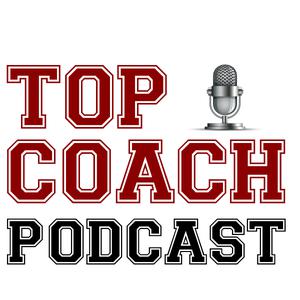
Championship Thinking in Sports – Jim Meier
Whether you’re a pro or amateur, high school athlete or youth league player, a coach or a parent, this is the show you’ve been looking for. Sports psychology can play a determining role in making our minds work for – instead of against – us. In The Mental Game in Sports, you’ll learn how to achieve significant and lasting improvement in your mental – and real performance. Tune in to start getting your thinking into shape – and keep it in shape!
- 27 minutes 12 secondsChampionship Thinking In Sports – Thanksgiving
As you enjoy time with family and friends and carve Mr. Gobble, I hope you also carve out time to reflect on the origin, meaning and value of this wonderful American holiday. Below is the story of the 103 Pilgrims who set sail from England 393 years ago. A story of sacrifice, courage and a vision. What existed beyond their horizon laid the foundation for our way of life and freedoms. The pilgrims no doubt had great fears and intrepidations about this journey and these surely were not eliminated when they set foot in Plymouth. Yet they persevered. They became innovators of a new self-made social order. And I deeply thank them for acting on their sense of purpose the courage to survive and in time thrive.
Subscribe with your favorite podcast player
AndroidRSSI invite you toAdd Media read and share it as you choose. May this Thanksgiving bring you and those you love closer together to share life’s most cherished gifts:
- love
- hope
- peace
- kindness
- the spirit to give
- liberty
- learning
- laughter
- a heart that listens
- Rich, cherished memories of loved ones whom have past
This text has not changed from what I’ve sent the last several years. I guess I like it as it is; just like a well cooked, basted and carved turkey with all the trimming.
Thanksgiving and the Pilgrim’s Legacy
In the early part of the 17th Century, a group of English religious dissenters received a patent from the Virginia Company of England to settle in Virginia. Separatists from the established Church of England, these religious pilgrims were enticed to the new land by the promise of religious freedom. They set out on their chartered ship, the Mayflower, September 6, 1620. The ship was 90 feet long and 26 feet wide and carried 103 men, women and children in conditions of overcrowding, damp, discomfort and cold.
They spotted land in November, but it was early December before they actually set foot on land. Somehow they had miscalculated; they were far north of Virginia. They had landed near what is today Provincetown, Massachusetts.
It was too late to do anything about it. If you know anything about Decembers in New England, you know that cold grey weather had arrived and they barely had time to settle in before they would receive the full brunt of winter. Their first official act was to elect a Governor, and to sign the Mayflower Compact, which is still one of the great historical liberty documents, assuring government for and by the people, and religious freedom for all. Next, they divided themselves into 19 families and set out to build themselves homes and a hospital.
The hard voyage was followed by the harshest winter any of them had ever known, beyond the imagination of some, and the effects of inadequate housing and the shortage of proper food took their toll. A few natives had taken pity on them and shared some stored provisions. But the natives had not set aside nearly enough for more than 100 unexpected visitors, so it was a winter of deprivation for the settlers. For the last months of winter, all the Pilgrims were hungry, and many died. One hundred and three men, women and children had set out together on their long voyage to freedom. When the snow melted and the first signs of spring finally appeared, only 56 still stood together. They must have wondered what sort of future they could possibly have on this unforgiving new land.During the first winter, the settlers had seen a few individual natives, and had seen some whole bands of natives in the distance, but mostly they had feared them and avoided contact. When spring came, they sought friendship with the natives, who seemed eager to meet them, and taught them their methods of survival. The natives introduced the settlers to corn, and gave them some of their stored supply. They taught them how to reinforce their homes and make them warmer and more suitable to this climate, how to plant and grow corn by putting kernels in the ground with a fish as fertilizer to make the corn grow healthy and tall, how to stalk wild turkey, wood pigeons, partridge, geese and ducks, how to catch and eat eels and clams, all of which were plentiful in this new land.
Imagine how it must have felt to not be hungry any more, to have a summer of plenty after that long winter of privation. The pilgrims, no doubt, were diligent students. They knew they had to learn now, while they were strong and the weather was warm, and do all that was necessary to store provisions and reinforce their settlement for the second winter.
How did they do, these sudden farmers? When all the work was done and autumn came, what kind of harvest did they have?
Reports on that vary. Some say that first harvest was sparse which would make sense, since the farmers were novices. Others say the pilgrims were astonished at the bounty this new land produced. Probably both reports are true. Future harvests must have produced more than the first one, as the settlers improved their agricultural skills and their understanding of the land. But no future harvest could have been more desperately needed or more appreciated than that first harvest.
That summer, the settlers signed a peace treaty with the natives, each promising to refrain from harming the other and to aid each other in times of trouble.
Later in the fall, the governor ordered a day of thanksgiving and issued an open invitation to the Indians. They were astounded when 90 came. To save their hosts embarrassment, they had brought along a large supply of oysters, corn, five deer, and cakes made of spiced, baked corn meal that many today call Indian pudding. Since the dinner guests contributed to the meal, this was perhaps the first American potluck, as well as the first Thanksgiving.
The celebration lasted three days. The first day was devoted entirely to eating. On the second and third day, the eating continued, of course, but then the serious play also began, as the two groups conducted races, wrestling matches, and contests of all kinds.It must have been kind of sad when it all died down at the end of the third day, and the guests departed leaving once again a group of sixty men, women and children facing another long winter – only this time it would be different. This time they had provisions stored, an understanding of the land and new farming skills, which let them know they could survive.
What does this familiar story have to say to us today? 380+ years have passed since those settlers invited the Indians to a celebration of Thanksgiving. How much in common could our Thanksgiving possibly have with theirs, yours and mine, the one we’ll have on Thursday? In some ways, I think quite a bit. Many of us will have guests, sometimes unexpected ones, maybe “too” many. Our days too will be filled with the same activities of cooking and eating some of the same foods as they served nearly four centuries ago; turkey and squash, corn and pumpkin, perhaps even oysters in the stuffing, and for some, maybe even venison. Like them, we’ll enjoy the delights of fresh baked bread and pies. Our days too may be filled with relatives and children, arguments and amusements much like their races and wrestling, contests and noisy games, although ours may be in the form of TV football or video games.
And for us too there will finally come an end to the celebration, the guests will leave, and we will return to our normal lives, as we face the coming winter and the waning light.
There are also significant differences. The settlers had buried half their number in the months just before that Thanksgiving celebration; spouses, parents, neighbors, children. Survivors probably did not know why they had been spared when others were lost. When the warmth finally returned as they worked together and with the natives during that spring and summer, they must have thought about the coming winter. Who would survive this time? Would they lose more loved ones…or would it be their turn to die?
Imagine their growing joy as they saw the bounty this new land provided, as they preserved foods for winter and watched their storerooms fill, and as they made their homes more safe and warm. When the cool of autumn came it was without the same deadly threat of the year before. There would be plenty; enough to share. What great relief must have accompanied that three-day celebration. What enormous gratitude they must have felt.
There is no way you and I can really know-in fact it is difficult to imagine-what it was like for those settlers to be so completely dependent upon the work of their own hands and the gifts of their little piece of land and sea. For them it was clear: a harvest meant life.People like us live in a time and place of plenty even in what we would call hard times. People like us, at least most, who can drive to a grocery store to buy a turkey, cranberry sauce, bread, lettuce and oranges in February cannot really know the hardship and challenges the Pilgrim’s endured.
What we can do is:
- Give thanks to the Pilgrims for the courage and resiliency they had shown
- Whine less about this and that & be much more thankful for what we have
- Be like those Indians who reached out to others in times of need with acts of kindness love
- Find joy in life’s simple things
- Forever stoke the fire of hope in ourselves
- Share the fire with others who’s embers glow faint
Blessing to you one and all,
Jim Meier
Championship Thinking CoachP.S. The Thanksgiving story is even more important to share today since surveys show more than one-third of Americans couldn’t name just one of the five First Amendment rights; rights rooted in the Pilgrims’ journey.
The post Championship Thinking In Sports – Thanksgiving appeared first on WebTalkRadio.net.
1 December 2014, 5:00 am - 59 minutes 6 secondsChampionship Thinking in Sports – How Safe is Your Baseball/Softball Culture from Legal Liability?
Today, more and more baseball and softball programs find themselves in lawsuits or expensive out of court settlement for lack of teaching, supervising and enforcing best safety practices. True, in sports injuries happen. However, if an major injury is litigated and it is ruled that a coach and/or the school or program administrator was negligent, abusive or reckless, the costs can easily be in 7 figures. And the bigger cost: a coach has to live with the haunting truth that a player’s catastrophic injury that happened to a player under his/her watch. On this is a growing issue, I’ve asked John Pinkman, Legal Consultant specializing in catastrophic baseball injuries, to be my guest on a three part series designed to increase the odds of prevent player injuries. As a Legal Consultant, John teaches the language and nuances of baseball and softball to lawyers including unsafe issues/practices that (can) occur in practices and games. John also writes for and speaks to schools, little league associations and at academies about how to build and sustain a culture of safe practices so coaches can coach, programs can thrive and player injuries are fewer and not catastrophic. This is the first of three shows to help you examine how safe your baseball or softball culture is from legal liability. Core topics are: 1) The misguided bravado of risk in sports, 2) Why ignorance and laziness are poor defenses, 3) The implication that an increasing body of sports science knowledge has a judgments, and 4) Examples of cases John has worked and his ongoing study of baseball and softball sports injuries. Shows two and three will drill down into the steps in prevention and what to do when an injury occurs.
Subscribe with your favorite podcast player
AndroidRSSThe post Championship Thinking in Sports – How Safe is Your Baseball/Softball Culture from Legal Liability? appeared first on WebTalkRadio.net.
17 November 2014, 5:00 am - 48 minutes 21 secondsChampionship Thinking in Sports – John Altobelli, Orange Coast College Head Baseball Coach, on Championship Leadership
This is the sixth and final show in a series with the head baseball coaches of the teams that won their division: D I, II, II, CC and California CC plus the DI runner up. Our driving question is: How do championships. The core theme is this: a head coach must have strong leadership skills in addition to game know-how and technical skills/X’s & O’s player development. Championships do not occur randomly. They happen because the head coach has and uses sound leadership principles. Principles that are practiced and communicated daily team among assistant coaches players and other staff that work with the team Tune in to hear Orange Coast head coach John Altobelli, share his brand and approach to leadership. A leadership formula that produced a perfect 9-0 postseason record and the school’s fifth state baseball championship (1956, 1960, 1980, 2009). John is in his 23rd season as the head coach of the Orange Coast baseball program with nearly 600 wins. He is only the 24th coach in the history of California Community College to reach 500 wins or more.. John has been chosen four times as the Orange Empire Conference Coach of the Year. His enthusiasm and knowledge of the game have helped him turn the Coast program into a perennial favorite to compete for the conference championship. 5 year as assist coach at UC-Irvine.
Subscribe with your favorite podcast player
AndroidRSSThe post Championship Thinking in Sports – John Altobelli, Orange Coast College Head Baseball Coach, on Championship Leadership appeared first on WebTalkRadio.net.
10 November 2014, 5:00 am - 33 minutes 2 secondsChampionship Thinking in Sports -The NCAA’s Perspective on Collegiate Baseball Toda
Tune in to hear Damani Leech, NCAA’s Director for Baseball and Football, share insights about his perspective on Collegiate Baseball Today. Key topics are: A. The noteworthy reduction in overall offense statistics throughout the 2014 season and at the College World Series, B. Expansion of the post season beyond 64 teams, and, C. Pros and cons of allowing a player to have an agent. Also, Damini and your host, touch on the breaking story about academic fraud and bogus classes that involved 3,100 students (49% student athletes from a student population where 4% are athletes) from 1993-2011 at the U. North Carolina. The last 10 minutes of the shows overviews just what sports psychology is and how, I, as a sports psychology professional teach and approach it.
Subscribe with your favorite podcast player
AndroidRSSDamani began his career at the NCAA in 1998 in the Membership Services group, prior to joining the baseball and football staffs in 2003. He is a former football student-athlete at Princeton University, earning third-team All-America honors and earning first-team All-Ivy League as a defensive back for three consecutive years. Damani received his bachelor’s degree in Public Policy and international affairs from Princeton University in 1998 and earned a Master’s in higher education administration from Indiana University in 2004.
The post Championship Thinking in Sports -The NCAA’s Perspective on Collegiate Baseball Toda appeared first on WebTalkRadio.net.
27 October 2014, 4:00 am - 1 hour 1 minuteChampionship Thinking In Sports – Tim Corbin, Head baseball Coach Vanderbilt University on Championship Leadership
Tune into this show to hear guest Tim Corbin, the 2014 DI National Coach of the Year, share lessons he learned from the 2014 championship season. Tim discussion: 1. Himself as a leader 2. Leading and leaning on assistant coaches 3. Leading players on and off the field 4. Building a team, 5 The importance of trust among peers 6. Planning, preparation and teaching, and 7. The game including how it has changed and I’ve changed with it. Tim has coached collegiately 27 years: 12 at Vanderbilt 9 as an assist at Clemson 6 at Presbyterian College. In 2002 at Clemson he was named 2002 National Assist Coach-of-the-Year. He has also been recognized three times as SEC coach of the year. In 2006 he was the head coach of the USA National Team and assistant coach of the team in 2000, both of those teams gold medals.
Subscribe with your favorite podcast player
AndroidRSSThe post Championship Thinking In Sports – Tim Corbin, Head baseball Coach Vanderbilt University on Championship Leadership appeared first on WebTalkRadio.net.
13 October 2014, 12:24 pm - 1 hour 1 minuteChampionship Thinking In Sports – Championship Leadership
4th in a series: How do championships happen? This leadership series brings you, the listener, guests that are proven winners. Of course a head coach, must have game know-how and the ability to teach technical skills/X’s & O’s for player development. However, he must also possess strong leadership skills. Why; because championships do not occur randomly. Rather, they happen because the head coach has and uses sound leadership principles. Principles practiced and communicated daily with all team members: assistant coaches, players, conditioning, sports psychology, academic advisor and administrative staff. Tracy Archuleta has led the U Southern Indiana Screaming Eagles to two NCAA Division II national championships in his eight years at the helm. He also has been recognized as the 2010 and 2014 Division II ABCA National Coach of the Year and the 2011 and 2014 GLVC Coach of the Year since taking over the program in 2007. He also is fast becoming the most winning coach in the history of the program with 312 victories in eight years. Prior to taking the Southern Indiana position, Tracy was head coach at U. Wisconsin-Parkside where he quickly turned around a sub-.500 program. The Rangers went from 13 wins in 2002 to 41 wins in 2004. In 2005 the Rangers won the Grand Lakes Valley Conference championship and made its 2nd straight appearance in the NCAA post-season tournament. Prior to becoming a head coach, Tracy was assistant coach at Wayne State College and Central Missouri State. In this show Tracy shares his leadership experience and approach to: 1. Building team pride, 2. Understanding were the program fits into the greater University picture, 3. Lessons learned about himself and leadership as an assistant and head coach, 4. Making mistakes and learning from team, 5. Creating trust with players, and, 6. The critical importance of having, executing and adjusting a system (the topic of a show Tracy did with me in 2010).
Subscribe with your favorite podcast player
AndroidRSSThe post Championship Thinking In Sports – Championship Leadership appeared first on WebTalkRadio.net.
18 August 2014, 4:00 am - 1 hour 6 minutesChampionship Thinking in Sports – John Vodenlich, Head Baseball Coach-U. Wisconsin-Whitewater on Championship Leadership
This is the 3rd show in a series on how do championships happen because of quality leadership. Of course a head coach, must have game know-how and the ability to teach technical skills/X’s & O’s for player development. However, he must also possess strong leadership skills. Why? Because championships do not occur randomly. Rather, they happen because the head coach has and uses sound leadership principles. Principles practiced and communicated daily with all team members: assistant coaches, players, conditioning, sports psychology, academic advisor and administrative staff. A few highlights about coach Vodenlich’s 11 years coaching career with the U. Wisconsin-Whitewater Warhawks…his alma mater: 402 wins and 75.8 winning percentage. 2005, 2014 NCAA Division III National Champions 2005, 2014 NCAA Division III National Coach of the Year 2004, 2008, 2009, 2010, 2013, 2014 WIAC Coach of the Year 2004, 2005, 2008, 2010, 2014 NCAA Regional Coach of the Year2005 WBCA Man of the Year and 2004, 2008, 2010 WBCA College Coach of the Year. John is an internationally known clinician, conducting coaching clinics in Germany, England, Austria, Slovenia, Croatia and Hungary. Among the best players to ever take the field for Whitewater, from 1989-1992, Vodenlich finished with a .397 career batting average, good for third all-time in school history. His .456 average in 1991 is the second best single season average in program history and became the first two-time All-American at Whitewater. Core topics in this show include: 1. Leadership styles of key coaching mentors-from autocratic to democratic, 2. John’s own leadership style and philosophy, 3. The leadership-follower equation, 4. How John’s business education-B.A. in Marketing and Public Relations and M.B.A. has helped frame his leadership decisions and system development, 5. Adaptability, openness and the hunger to learn, and 6. Placing the image of the school and program front and center in recruiting.
Subscribe with your favorite podcast player
AndroidRSSThe post Championship Thinking in Sports – John Vodenlich, Head Baseball Coach-U. Wisconsin-Whitewater on Championship Leadership appeared first on WebTalkRadio.net.
11 August 2014, 4:35 am - 50 minutes 18 secondsChampionship Thinking in Sport – Brian O’Connor-Head Baseball Coach, U. of Virginia on Championship Leadership
How do championships happen? This is the first in a series on how championships happen with guests that are proven winners. The core theme is that a head coach must have strong leadership skills in addition to game know-how and technical skills/X’s & O’s player development. Championships do not occur randomly. They happen because the head coach has and uses sound leadership principles. Principles daily practiced and communicated daily with all team members. Key among the team is: assistant coaches, players, conditioning staff, sports psychologist, administrative staff and academic advisors. Tune in to learn U. of Virginia Head Baseball Coach Brian O’Connor’s* brand of leadership. * Selected 2009 National Coach of the Year, 5-time ACC Coach of the Year, in Brian’s 12 years at U. of Virginia he has lead the Cavaliers to 3 College World Series appearances in ’09, ’11 and a 2nd place finish this year. In the last 7 years, UVA has recorded 351 wins in the last seven years – the most victories of any Division I program during that time. Prior to UVA, Brian was Assistant and Associate coach at Notre Dame for 9 years where he was honored as DI Assistant Coach of the Year in 2001. This is Brian’s 2nd appearance on Championship Thinking in Sports. On January 22, 2008 he educated listeners on the Eight Key Factors for Being a Winning Pitcher.
Subscribe with your favorite podcast player
AndroidRSSThe post Championship Thinking in Sport – Brian O’Connor-Head Baseball Coach, U. of Virginia on Championship Leadership appeared first on WebTalkRadio.net.
14 July 2014, 4:00 am - 1 hour 4 minutesChampionship Thinking in Sports – How to Manage the Long Season
Guest Andy Green, Arizona Diamondbacks’ Mobile BayBears Southern League manager, shares ways he prepares for and works through the long baseball season. Why listen? You’ll learn and re-learn nuggets of gold from a former major leaguer, 2013 league manager of the year and Kentucky Wildcats all-time leader in games, starts, at-bats, runs and hits and first team Academic All-American. Key topics discussed are a) the grind, b) team cohesion, c) passion, energy and fun, d) dealing with physical and mental stress, e) adversity, f) adjusting, g) personality insights and assessment, h) and more.
Andy loves to learn. Although only 36 years old, he’s in his 4th year as a professional manager. After doing this interview (which could have been hours given his insights), I have no doubt why the Diamondbacks trust him to get the job done. Simply said, Andy knows his focus must be on developing players. And to do that, he knows using his baseball knowledge, skills and abilities must be on them as individuals in the reality of team setting.Subscribe with your favorite podcast player
AndroidRSSThe post Championship Thinking in Sports – How to Manage the Long Season appeared first on WebTalkRadio.net.
17 March 2014, 9:43 pm - 42 minutes 57 secondsChampionship Thinking in Sports – Update from ABCA: Preview of The 2014 ABCA Convention
Dave Keilitz, 20 year Executive Director*, American Baseball Coaches Association (ABCA) previews the upcoming 70th Annual convention scheduled Jan 2-5 in Dallas. Dave, who has been to every convention the past 44 years, has seen it grow from his first one in ’69 with 250-300 coaches in attendance to last year w/ nearly 5,500 coaches soaking up the learning and contact. 29-30 clinics are slated which will address a wide range of technical skills, the mental game and strength and conditioning. Dave also discusses the value of informally networking with other coaches and teachers in the game as well as how the wide mix of vendor displays have grown from 3 in ’69 to over 300 occupying 150,000 square feet.
Subscribe with your favorite podcast player
AndroidRSS*Dave Keilitz: 1964 1st team All-American, 14 year head coach Central Michigan U. (69% winning %), 51 players advanced to pro ball, recipient of numerous baseball awards. Dave will retire from the Ex. Dir. position in June. However, he will continue to serve on ABCA’ board.
The post Championship Thinking in Sports – Update from ABCA: Preview of The 2014 ABCA Convention appeared first on WebTalkRadio.net.
6 January 2014, 5:00 am - 1 hour 1 minuteChampionship Thinking in Sports – Climbing the Success Ladder the Kansas State Way
Every day Kansas State head baseball coach, Brad Hill* thinks about what is needed to inch upward another rung on the collegiate success ladder. In his 26 year college coaching career has had steady, significant success doing just that. The run down: Hutchison CC ’88-90 record 83-50 , U. of Kansas ’91-94 record 144-92, Central Missouri State ’95-’03 record 198-17 including national champions in ’03 and Kansas State ’04-present 338-243-3. In Brad’s 1st year at K-State, the team finished 26-30 and 10th in the Big 12. Other than a slip on the ladder in 2012 his Wildcat teams have methodically and climbed upward in the highly competitive Big 12. This year the Wildcats won the conference championship and coming within one game of the College World Series. Whether you are a coach, player or have another role in baseball, as you listen to Brad you’ll gain valuable insights. You’ll enjoy his no-frills, straightforward way of communicating. *4 time NAIA All-American at Emporium State U., ’81-84 and four years in the Texas Ranger minor league system.
Subscribe with your favorite podcast player
AndroidRSSThe post Championship Thinking in Sports – Climbing the Success Ladder the Kansas State Way appeared first on WebTalkRadio.net.
1 December 2013, 10:42 pm - More Episodes? Get the App
Your feedback is valuable to us. Should you encounter any bugs, glitches, lack of functionality or other problems, please email us on [email protected] or join Moon.FM Telegram Group where you can talk directly to the dev team who are happy to answer any queries.
 Baseball Outside the Box - Coaching Podcast
Baseball Outside the Box - Coaching Podcast
 Brian Cain's Peak Performance Podcast
Brian Cain's Peak Performance Podcast
 Baseball Dads Podcast
Baseball Dads Podcast
 Top Coach Podcast
Top Coach Podcast
 Diamond Dreams Baseball Performance Podcast
Diamond Dreams Baseball Performance Podcast
 Power of Positive
Power of Positive